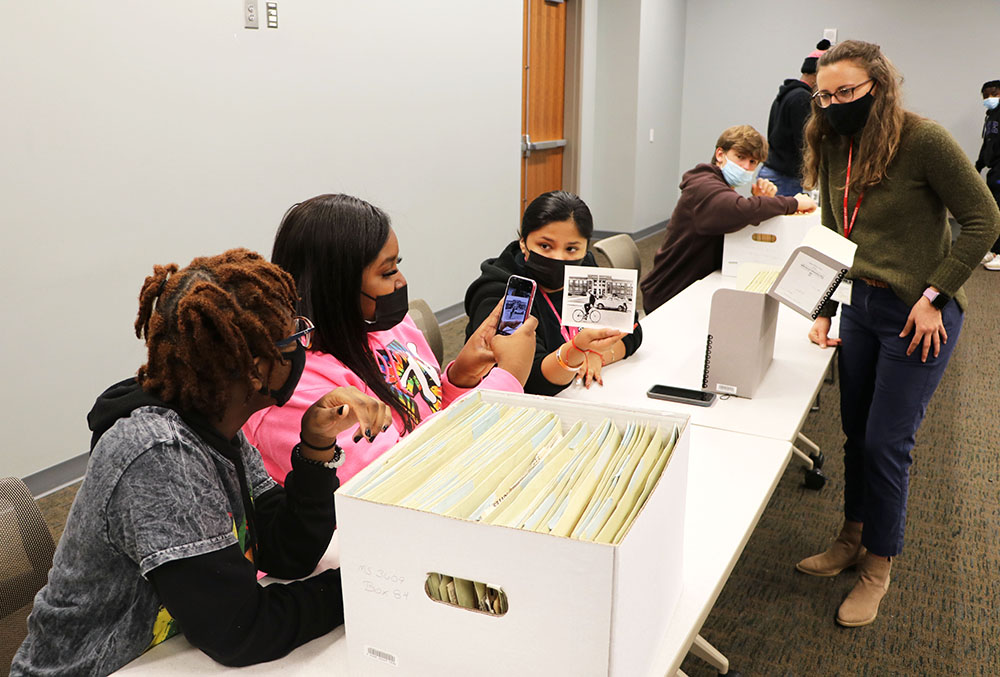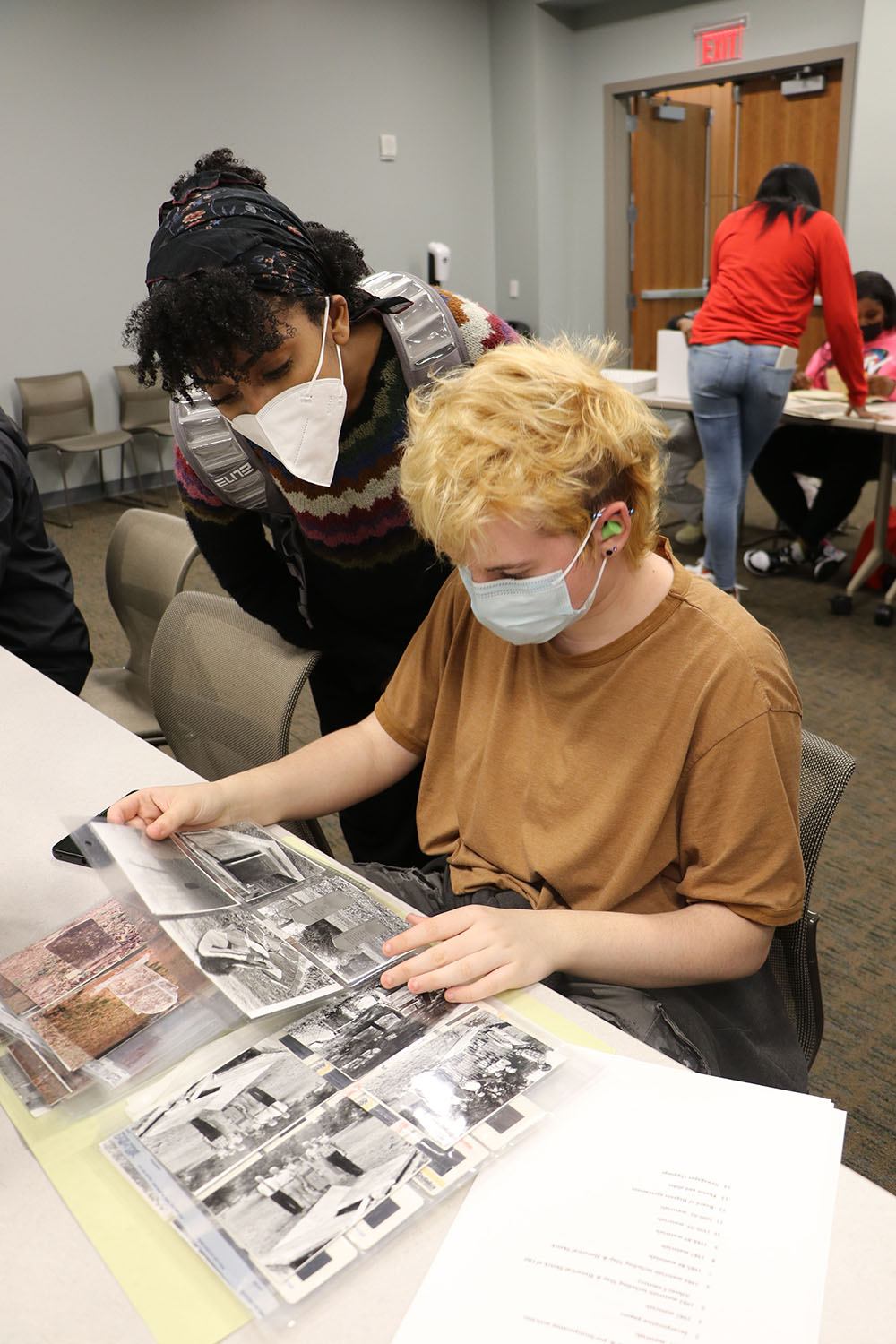When Jennifer Tesler started teaching her students about the Harlem Renaissance, she couldn’t help but notice the similarities between the New York borough known for its cultural and political history and their own eclectic, diverse hometown of Athens. In fact, the Georgia city has ties to influential writer and scholar W.E.B. Dubois and several of the Harlem Renaissance musicians, who performed at the Morton Theatre.
Rethinking teaching strategies for her English class, Tesler and other English teachers at Clarke Central High School started looking for ways to engage students in discussions about multiculturalism in their own community. They invited community leaders to talk to students, read books and plays by local authors, and screened documentaries, but they wanted to go a step further so that the students could reflect on the places, people, and moments that have shaped Athens.
 The teachers partnered with the Special Collections Libraries at the University of Georgia to engage students in projects researching Athens landmarks and learning about significant events that have shaped the community around them, discovering some first-hand pieces of history preserved in the archives.
The teachers partnered with the Special Collections Libraries at the University of Georgia to engage students in projects researching Athens landmarks and learning about significant events that have shaped the community around them, discovering some first-hand pieces of history preserved in the archives.
“We wanted to give them an experience and also help them to learn research skills,” said Tesler, who is devising the curriculum with fellow teachers Erin Horton, Ana Maria Neal, and Brittany Carter for their 12th grade classes. “All these questions have come up. … They are seeing history and sharing their stories. Eventually they may be contributing their own version of history to the archives.”
From the environmental history of the Sandy Creek Nature Center to learning about local protests held at the popular Varsity restaurant decades before they were born, the students are sifting through city council records, community pamphlets, photographs, newspaper clippings and more to learn more about the town’s history that many never knew existed.
During a field trip to the Special Collections Building this November, Jerian Brown talked about watching a documentary about civil rights protests in the area, and he was surprised to recognize some of the elders from his church that he knew all of his life. He realized he didn’t know much about their stories, but he wanted to find out more.
“My aunt, she told me some things growing up, but you don’t realize how big it was until you look into it,” he said. After learning about oral histories through the Russell Library at UGA, Brown is now incorporating interviews with his family members into his project.
For his project on the history of hate crimes in the Latinx community in Athens, Jessi Rodriguez sifted through a box filled with leaflets and letters about KKK rallies, as well as handwritten notes, clipped to newspaper articles written by journalist Jorge Valencia.
“It makes me feel interested in the history of Georgia and how Hispanic people felt about living here,” Rodriguez said, adding that the historical documents helped him understand the times. “It felt way different. I’ve never seen this stuff first-person; it’s a really different experience.”
As Kamryn Johnson and Nahya Chery started looking through their box of research materials, they flipped past old articles about the mayor and her dog and expressed frustration that they might not find anything on their topic. Minutes later, they read through a full article on the Oconee Hill Cemetery, a historic cemetery, that answered many of their questions.
“You got to go through a lot of stuff, but eventually, you might find something you are looking for,” Johnson said, as Chery snapped a photo with her cell phone.
With one group of students, Mazie Bowen, public service coordinator for the Special Collections Libraries, pointed at historic maps and talked through how to find more historical information. Several students asked about when they could come back and spend more time with the archival materials.
“I want young people to know that they have a place here at Special Collections,” Bowen said. “It is important to know about where you live and, in turn, leave something behind so future generations can know about your time here in Athens.”
